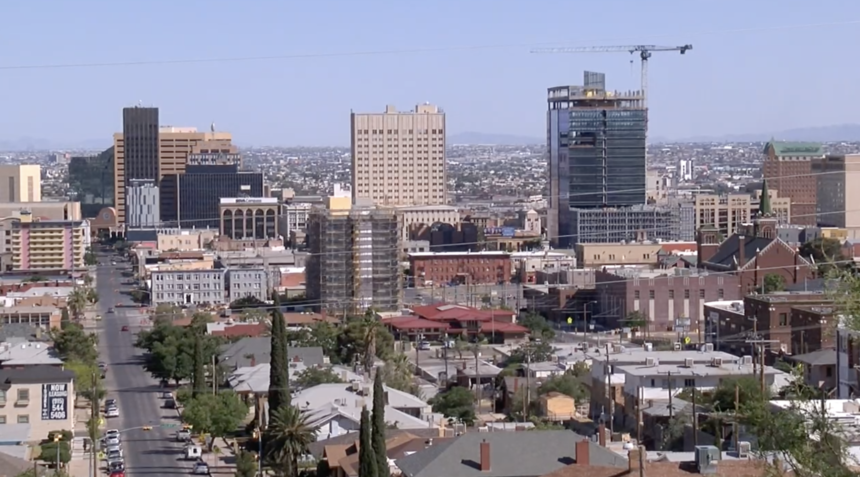Bars and bowling alleys re-open in Texas, but not in El Paso, as New Mexico warns residents not to visit

EL PASO, Texas — Texas bars and bowling alleys reopened for the Memorial Day weekend as the state continues to gradually restart one of the world’s largest economies after it was ravaged by shutdowns caused by the coronavirus epidemic.
The new standards don’t apply yet in El Paso and Amarillo, however, which have seen a recent increase in virus cases.
The situation in El Paso has officials in that city and in neighboring New Mexico urging their residents not to visit each other.
Las Cruces Mayor Ken Miyagishima is asking his residents not to go to El Paso over the long holiday weekend, despite the temptation.
“Please be mindful of the risk you pose to yourself and your loved ones if you consider going to El Paso during this time. It really is better to be safe than sorry by staying put and avoiding the unnecessary risk of exposure,” Miyagishima said.
Dona Ana County Commissioner Chair Lynn Ellins echoed Miyagishima’s sentiments.
“New Mexico is taking a very measured approach to re-opening in an effort to keep Covid-19 at bay. We want to ask our residents to stay home over the Memorial Day weekend so that the progress made in containing the virus is not jeopardized,” Ellins said.
El Paso Mayor Dee Margo said he is also discouraging El Pasoans from traveling to the popular Elephant Butte reservoir in New Mexico, which normally draws Texans for picnics and boating on the holiday weekend.
Republican Texas Gov. Greg Abbott earlier this week ordered further easing of some state restrictions that had shuttered many venues for more than a month. The Texas Workforce Commission said the state reached 12.8 percent unemployment in April, the highest monthly level since the state began recording the figures in January 1976.
In other parts of Texas, away from El Paso and the panhandle, bars, breweries and tasting rooms were allowed to reopen Friday at 25 percent capacity and with other social distancing measures in place.
Rodeos, bingo halls and aquariums also can reopen. Restaurants, which were allowed to reopen May 1 at 25 percent customer capacity, can now run at 50 percent, although the industry is pushing to be allowed to serve more.
Texas has reported nearly 53,500 cases of Covid-19 with 1,480 deaths to date.
Abbott has noted increased testing in Texas, a rate of infection that has steadily hovered around 5 percent, and available hospital space as reasons to gradually reopen, and the governor has been steadily rolling back restrictions. That has led some Democratic leaders in the state’s largest cities to question whether it is happening too fast, while some business leaders say it’s not quick enough.
In Houston, Democratic Mayor Sylvester Turner questioned whether the state will help cities enforce what limits are still left.
Turner said the city had previously tried to enforce Abbott’s now-expired “stay at home order,” was sued and “didn’t get the back up from the state.”
“That has us in a very awkward position,” trying to enforce the rules, Turner said.
The Texas Restaurant Association said this week the roll-out was too slow and threatened to close some restaurants for good. The group projects it could lose as many as 30 percent of Texas’ estimated 50,000 restaurants.
“Moving to 50 percent (of customers), certainly anytime we can move in the right direction and increase capacity, that’s a good win for our restaurants. It’s just simply not enough,” association President Emily Williams Knight said. “We are working very hard now to lay out the plans to move restaurants to 75 percent in the next phase and think of lots of creative solutions to keep guests safe … No restaurant can make it on 50 percent occupancy.”
